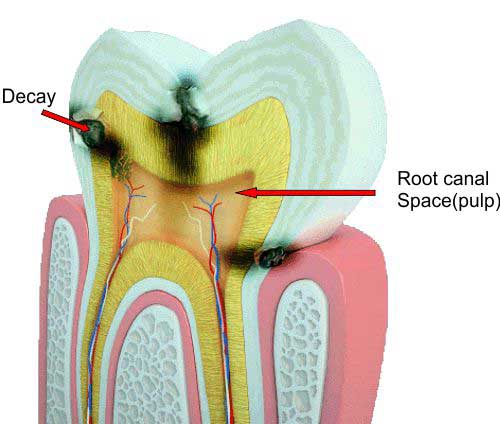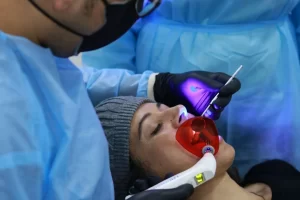
People rarely need endodontic treatment, and it is not as painful as caries filling. In short, this operation may cause some discomfort and pain, but the level of toothache after endodontic treatment depends on the condition of the root canal and the cause of the discomfort. For example, if a tooth has previously had endodontic treatments, you may feel discomfort and pain in your gums or teeth after the operation. Endodontists at a Toronto endodontics office recommend that patients seek immediate treatment if root canal therapy is necessary.
Pain cause after a root canal or endodontic treatment
Unfortunately, the word endodontics has the same meaning as pain for some patients. However, the pain mostly occurs before the start of treatment, not during the process. Endodontic treatment is always performed under local anesthesia and is usually painless. With advances in pain management, there are many ways to create comfort during this procedure.
Periodontal discomfort
During the process, the dentist should isolate the tooth using a plastic band. The metal clamps that hold the brace in place may cause minor damage to the periodontal tissue or gums around the affected tooth. This injury includes stinging, bruising, and cutting. This pain improves in a few days and has no lasting side effects.

Inflammation
The most common pain source in the tooth after endodontic treatment is inflammation of the tooth’s tissue. Inflammation occurs when a nerve under the root goes down, or tooth debris is removed.
Infection of affected teeth
Pain in an infected tooth persists until the infection is removed. Sometimes a tooth becomes infected without any problem. Unfortunately, in these conditions, the infection gets activated by endodontic treatment, which causes pain. This condition is less likely to occur. In this case, the dentist usually prescribes antibiotics, and if the toothache is severe, a more potent painkiller should be used.
Treatment failure
In rare cases, endodontic treatment fails. Severe pain that does not disappear after a few days is one of the symptoms of such a problem. Other danger signs are as follows:
-No reduction in pain levels compared to the pain before treatment
-Persistent toothache
-Swelling, fluid accumulation, or fluid leakage
-High sensitivity to cold
-Recurrent pain after a few days
Very severe pain after endodontic treatment
If you have discomfort after the treatment process, there are several ways to manage this situation. If the pain is so severe in a way that disrupts your everyday life, call your dentist in no time. Sometimes complications occur after endodontic treatment, including severe pain due to not completely removing the bacteria or infection source.
In case of intense pain, contact your dentist after a few days of the treatment process. By examining your teeth, the dentist will tell you the next stages to complete recovery. You may need to repeat the root canal treatment to relieve the pain and preserve the tooth. The dentist describes the advantages and disadvantages of each method to make the best choice.





